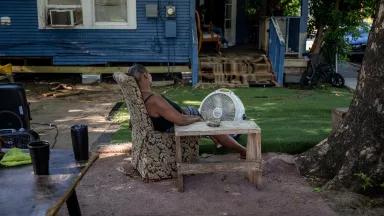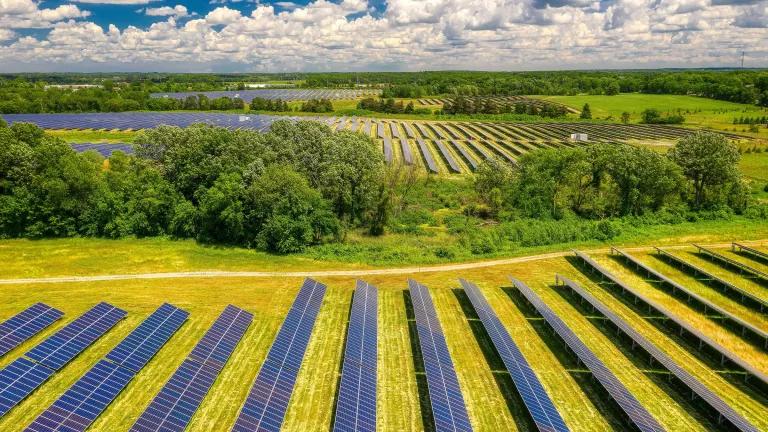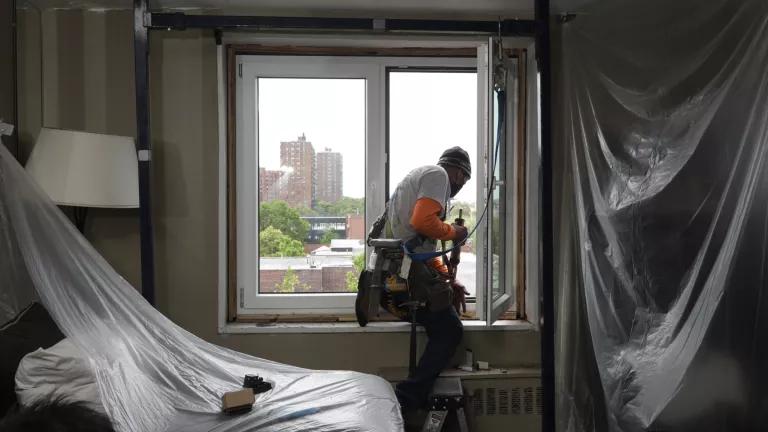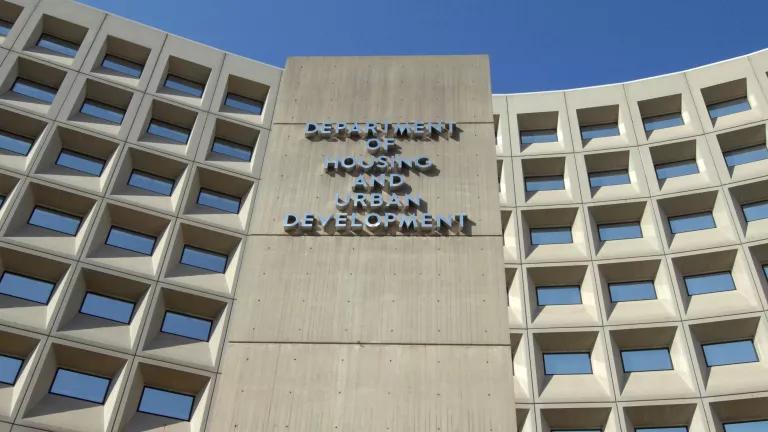Healthy, Climate-Resilient Homes for All: Centering Housing Justice and Health Equity in Building Decarbonization
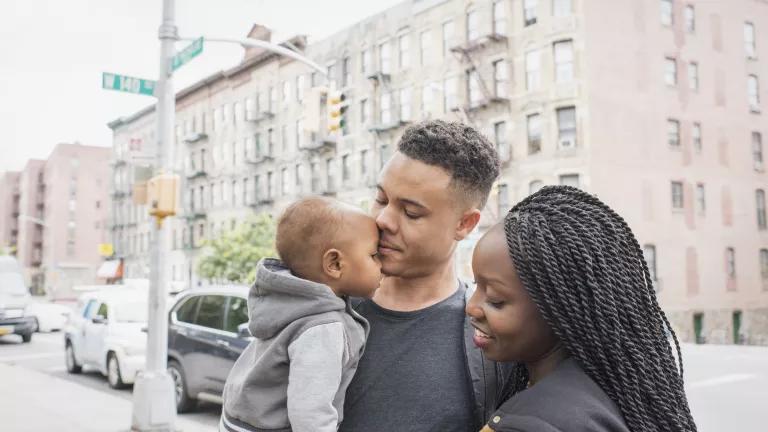
Getty Images
Buildings are responsible for more than 30 percent of U.S. greenhouse gas (GHG) emissions. Building decarbonization, consisting of building electrification and energy efficiency, can reduce energy use and GHG emissions related to buildings.
However, the built environment is also home to long-standing inequities in housing quality for systematically marginalized communities, which contribute to health disparities such as childhood asthma. Current patterns of housing quality inequity are directly connected to racist policies and practices, such as redlining and exclusionary zoning. These policies have led to communities of color and low-income communities experiencing higher levels of environmental pollution, poorer housing conditions, and greater household energy burden compared to their White counterparts. Current building decarbonization programs and policies threaten to perpetuate these injustices.
By centering the leadership of disinvested communities and integrating health equity in building decarbonization, we have an immense opportunity to address buildings’ GHG emissions; improve housing quality and address related health disparities; make our infrastructure more resilient to climate change; and advance a more just and equitable future.

